SEOUL, South Korea--(BUSINESS WIRE)--Nov 4, 2024--
Global IT company FPT has recently entered into a three-year partnership agreement with OutSystems, a recognized leader in high-performance application development. Through this collaboration, FPT will become one of Outystems’s reseller and delivery partners in the South Korean market, offering clients accelerated time-to-market and cost-efficient software solutions.
This press release features multimedia. View the full release here: https://www.businesswire.com/news/home/20241104816290/en/
By harnessing OutSystems' industry-leading low-code platform, FPT aims to enrich its portfolio with faster application development, prototyping, and deployment services. The partnership also unlocks opportunities to extend market reach through OutSystems' partner ecosystem. Additionally, the two companies will co-host workshops and engage in joint sales and marketing initiatives, fostering knowledge exchange and driving shared success.
By combining OutSystems’ AI-powered low-code platform with FPT's proven delivery capabilities, the collaboration will empower businesses to enhance operational efficiency, extend system functionality, and leverage customer experience. It will prioritize the development of innovative solutions, particularly generative AI-powered low-code technologies, to accelerate the digital transformation of Korean enterprises and enhance their agility and competitiveness in an increasingly dynamic market.
“With years of experience supporting both global and South Korean enterprises, FPT has developed deep insights into the unique challenges our local customers face. Through this partnership with OutSystems, we reaffirm our commitment to empowering businesses in South Korea with world-class solutions to enhance their agility, drive innovation, and achieve sustainable growth,” Ha Minh Tuan, Chief Executive Officer of FPT Korea, FPT Corporation pledged.
"OutSystems is excited to bring generative AI-powered low-code solutions to support the digital transformation of Korean businesses. We are confident that FPT will play an important role in advancing the low-code market, leveraging our strong partnership to achieve this goal. Together, we are committed to delivering impactful solutions that address the critical challenges faced by organizations in Korea, including IT resource shortages, budgetary constraints, and stringent timelines for digital transformation," said Head of OutSystems Korea, Changhyeon Kim.
FPT's partnership with OutSystems, established in 2019, has resulted in remarkable joint achievements. The company boasts a team of over 5,000 low-code developers, enabling it to deliver a comprehensive range of services, including the development, operation, and maintenance of software applications on low-code platforms.
About FPT
FPT Corporation (FPT) is a globally leading technology and IT services provider headquartered in Vietnam. FPT operates in three core sectors: Technology, Telecommunications, and Education. During over three decades of development, FPT has constantly provided practical and effective products to millions of people and tens of thousands of business and non-business organizations worldwide, establishing Vietnam’s position on the global tech map. Keeping up with the latest market trends and emerging technologies, FPT has developed the Made-by-FPT ecosystem of services, products, solutions, and platforms, which enables sustainable growth for organizations and businesses and offers distinctive experiences to customers. In 2023, FPT recorded a total revenue of USD 2.17 billion and 48,000+ employees. For more information about global IT services, please visit https://fptsoftware.com.
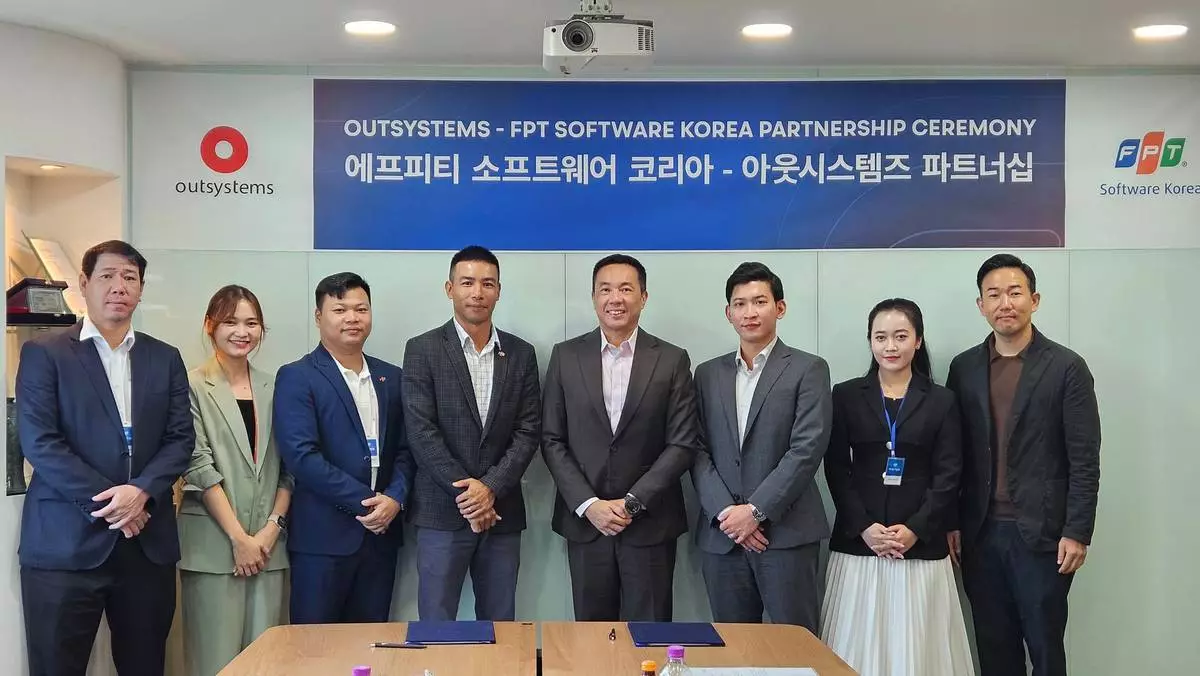

(Photo: Business Wire)
SEOUL, South Korea (AP) — South Korean investigators arrived at the presidential residence with a warrant to detain impeached President Yoon Suk Yoel over his short-lived imposition of martial law, but faced resistance from presidential security staff as hundreds of Yoon’s supporters gathered outside vowing to protect him.
It’s the latest confrontation in a political crisis that has paralyzed South Korean politics and seen two heads of state impeached in under a month. It began on Dec. 3 when Yoon, apparently frustrated that his policies were blocked by an opposition-dominated parliament, declared martial law and dispatched troops to surround the National Assembly.
Parliament overturned the declaration within hours in an unanimous vote and impeached Yoon himself on Dec. 14, while South Korean authorities opened a criminal investigation into the events. Yoon has remained defiant, ignoring requests for questioning and vowing to fight to remain in office.
Four hours after dozens of investigators and police officers were seen entering the gate of the residence in Seoul to execute a warrant for Yoon’s detention, the dramatic scene appeared to have developed into a standoff.
The anti-corruption agency didn’t immediately reply to questions about whether investigators successfully entered Yoon’s residential building, but South Korea’s YTN television reported scuffles as investigators and police confronted the presidential security forces.
Seok Dong-hyeon, one of several lawyers on Yoon’s legal team, confirmed that the investigators arrived at the building but said it was unlikely that they would be able to detain the president on Friday. He said the agency’s efforts to detain Yoon were “reckless” and showed an “outrageous discard for law.”
South Korea’s Defense Ministry confirmed that the investigators and police officers got past a military unit guarding the residence’s grounds before arriving at the building. The presidential security service, which controls the residence itself, refused to comment on whether its members were confronting investigators and whether they planned to block the detention attempt.
The hourslong standoff prompted the liberal opposition Democratic Party to call on the country’s acting leader, Deputy Prime Minister Choi Sang-mok, to order the presidential security service to stand down. Choi, who also serves as finance minister, didn’t immediately comment on the situation.
“We warn presidential security service chief Park Jong-joon not to further participate in a rebellion. Do not drag the upright staff of the presidential security service and other public officials into the depths of crime,” said Jo Seung-lae, a Democratic lawmaker. Choi must “remember that swiftly addressing the rebellion and preventing further chaos is your responsibility,” Jo said.
In a defiant New Year’s message to conservative supporters rallying outside his residence, Yoon said he will “fight to the end” against “anti-state forces.” His lawyers have described the warrant as “invalid” and “illegal,” and said that the presidential security force could arrest police trying to execute it.
Thousands of police officers gathered at Yoon’s residence and formed a perimeter around a growing group of pro-Yoon protesters, who braved subfreezing temperatures for hours, waving South Korean and American flags while chanting slogans in his support. There were no immediate reports of major clashes.
A Seoul court issued a warrant for Yoon’s detention on Tuesday after he evaded multiple requests to appear for questioning and blocked searches of his office in Seoul, hindering an investigation into whether his ill-conceived power grab on Dec. 3 amounted to rebellion.
The warrant is valid for one week, and investigators may make another attempt to detain Yoon if they are unable to do so on Friday.
Investigators from the anti-corruption agency were earlier seen loading boxes into several vehicles before leaving their building in the city of Gwacheon early in the morning. Television footage later showed some of those vehicles weaving between police buses that tightly packed and barricaded the streets near Yoon’s residence.
If Yoon is detained, the anti-corruption agency will have 48 hours to either request a warrant for his formal arrest or release him. Yoon’s defense minister, police chief and several top military commanders have already been arrested over their roles in the period of martial law.
Yoon Kap-keun, another lawyer representing the president, described the investigators’ efforts to detain him as illegal and said they would plan to pursue unspecified legal steps against the anti-corruption agency.
Yoon Suk Yeol’s lawyers have argued the court’s detainment warrant is invalid, claiming that the anti-corruption agency lacks the legal authority to investigate rebellion charges. They also accuse the court of bypassing a law that says locations potentially linked to military secrets cannot be seized or searched without the consent of the person in charge.
The lawyers have said police officers would be exceeding their legal authority if they assist in detaining Yoon, and could face arrest by either the “presidential security service or any citizens.” They didn’t elaborate further on the claim.
Critics accused Yoon of inciting his supporters to obstruct attempts to detain him. South Korean law permits anyone to make an arrest to stop an active crime.
The Democratic Party, which drove the legislative vote that impeached Yoon Suk Yeol on Dec. 14 over his imposition of martial law, accused the president of trying to mobilize his supporters to block his detention and called for law enforcement authorities to execute the warrant immediately.
Yoon Kap-keun, the president’s lawyer, filed a challenge with the Seoul Western District Court on Thursday to block both the detention warrant for Yoon Suk Yeol and a related search warrant for his residence. The lawyer argued that both warrants violate criminal laws and the constitution.
Yoon’s presidential powers were suspended following a National Assembly vote to impeach him on Dec. 14 over his imposition of martial law, which lasted only hours but has triggered weeks of political turmoil, halted high-level diplomacy and rattled financial markets. Yoon’s fate now lies with the Constitutional Court, which has begun deliberations on whether to uphold the impeachment and formally remove Yoon from office or reinstate him.
To formally end Yoon’s presidency, at least six justices on the nine-member Constitutional Court must vote in favor.
The National Assembly voted last week to also impeach Prime Minister Han Duck-soo, who became acting president after Yoon’s powers were suspended, over his reluctance to fill three Constitutional Court vacancies ahead of the court’s review of Yoon’s case.
Facing growing pressure, the new acting president, Choi, appointed two new justices on Tuesday, which could increase the chances of the court upholding Yoon’s impeachment.
Yoon’s imposition of martial law ended after only six hours when the National Assembly voted 190-0 to lift it despite attempts by heavily armed soldiers to prevent them from voting.
Yoon has defended his martial law decree as a necessary act of governance, portraying it as a temporary warning against the Democratic Party, which he has described as an “anti-state” force obstructing his agenda with its legislative majority.
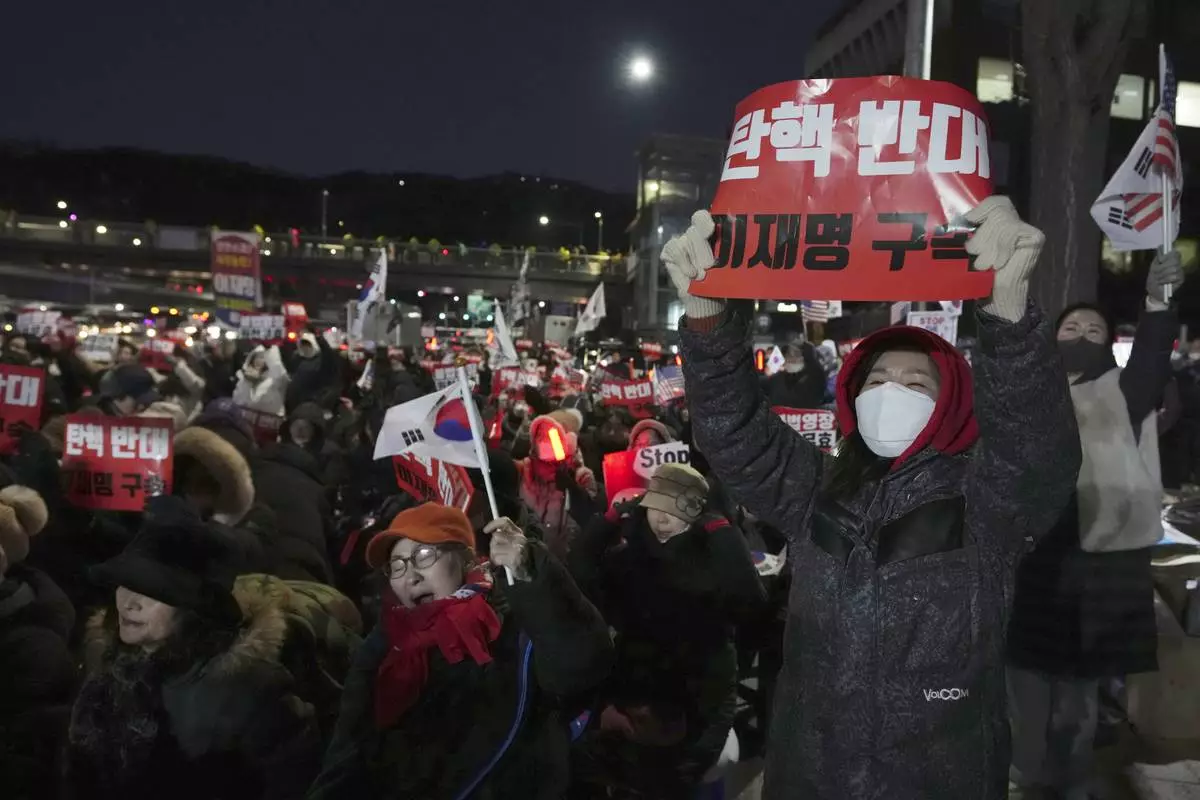
Supporters of impeached South Korean President Yoon Suk Yeol stage a rally to oppose a court having issued a warrant to detain Yoon, as police offices stand guard near the presidential residence in Seoul, South Korea, Friday, Jan. 3, 2025. The sign reads "Oppose Impeachment." (AP Photo/Lee Jin-man)
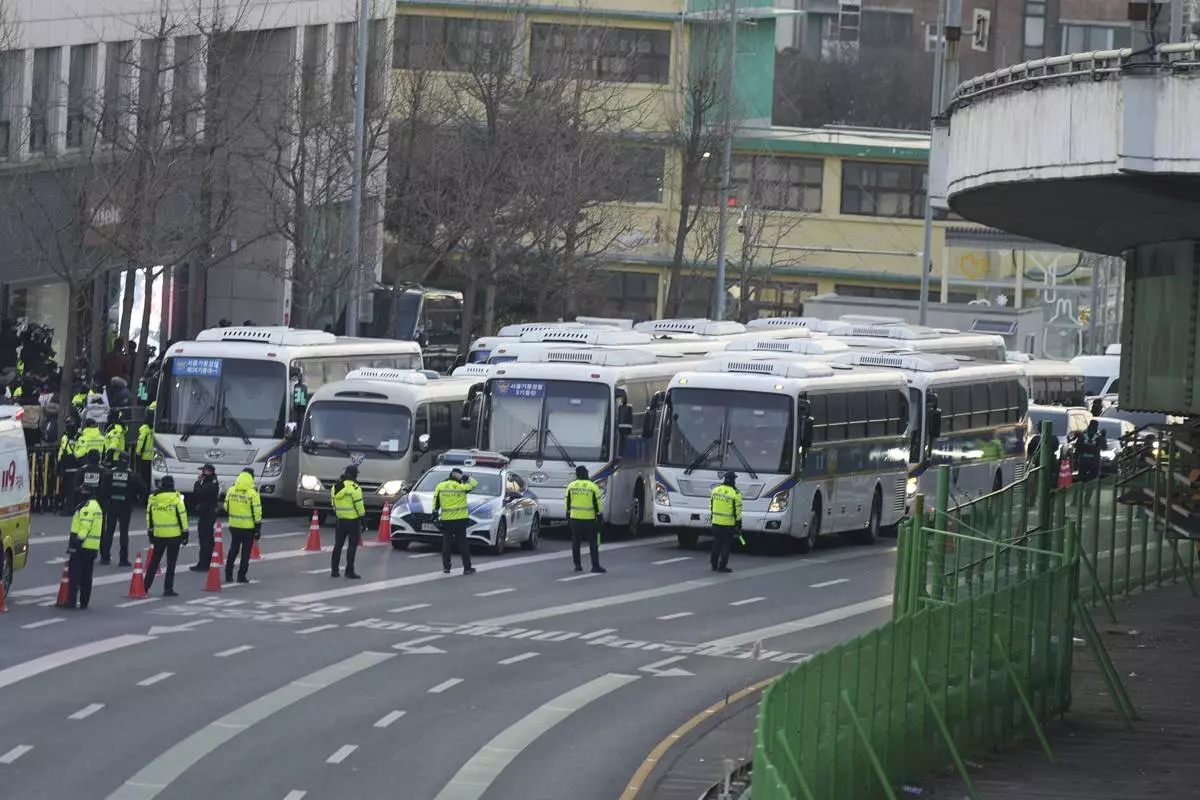
Police vehicles are seen near the gate of the presidential residence as supporters of impeached South Korean President Yoon Suk Yeol stage a rally to oppose a court having issued a warrant to detain Yoon, in Seoul, South Korea, Friday, Jan. 3, 2025. (AP Photo/Lee Jin-man)
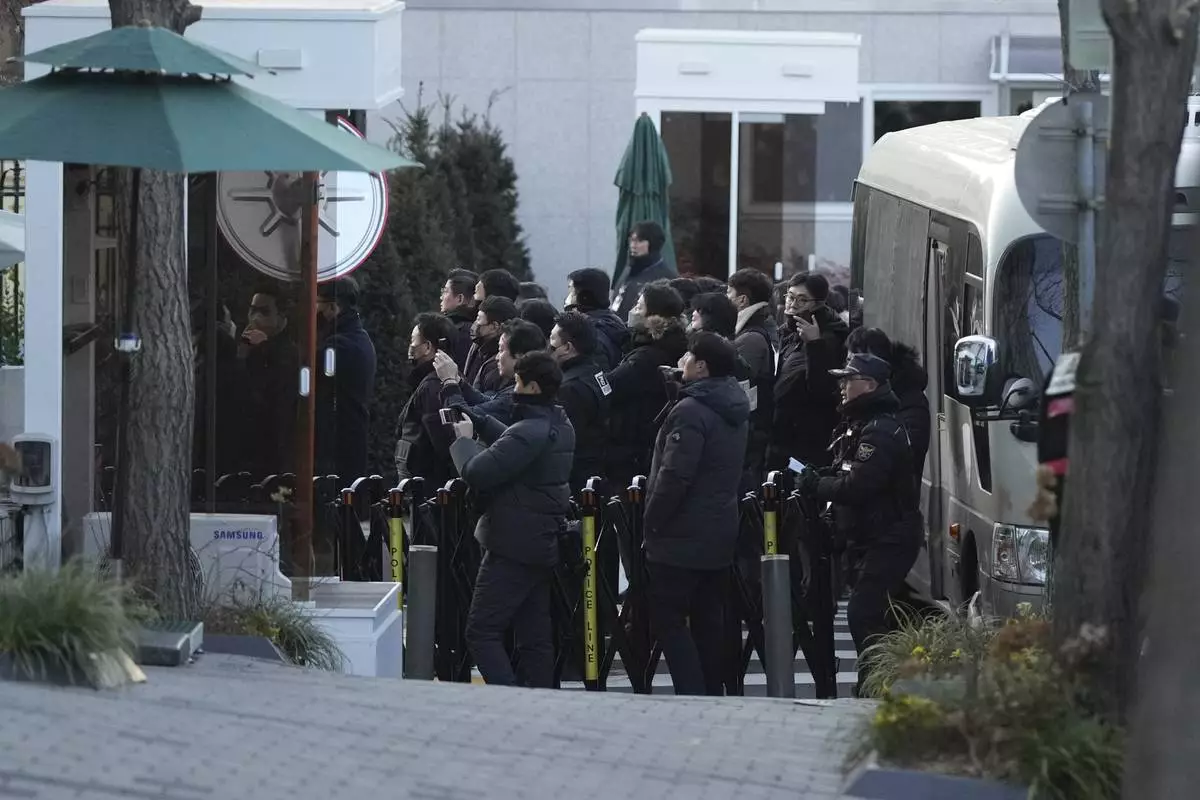
Police officers arrive at the gate of the presidential residence as supporters of impeached South Korean President Yoon Suk Yeol stage a rally to oppose a court having issued a warrant to detain Yoon, in Seoul, South Korea, Friday, Jan. 3, 2025. (AP Photo/Lee Jin-man)
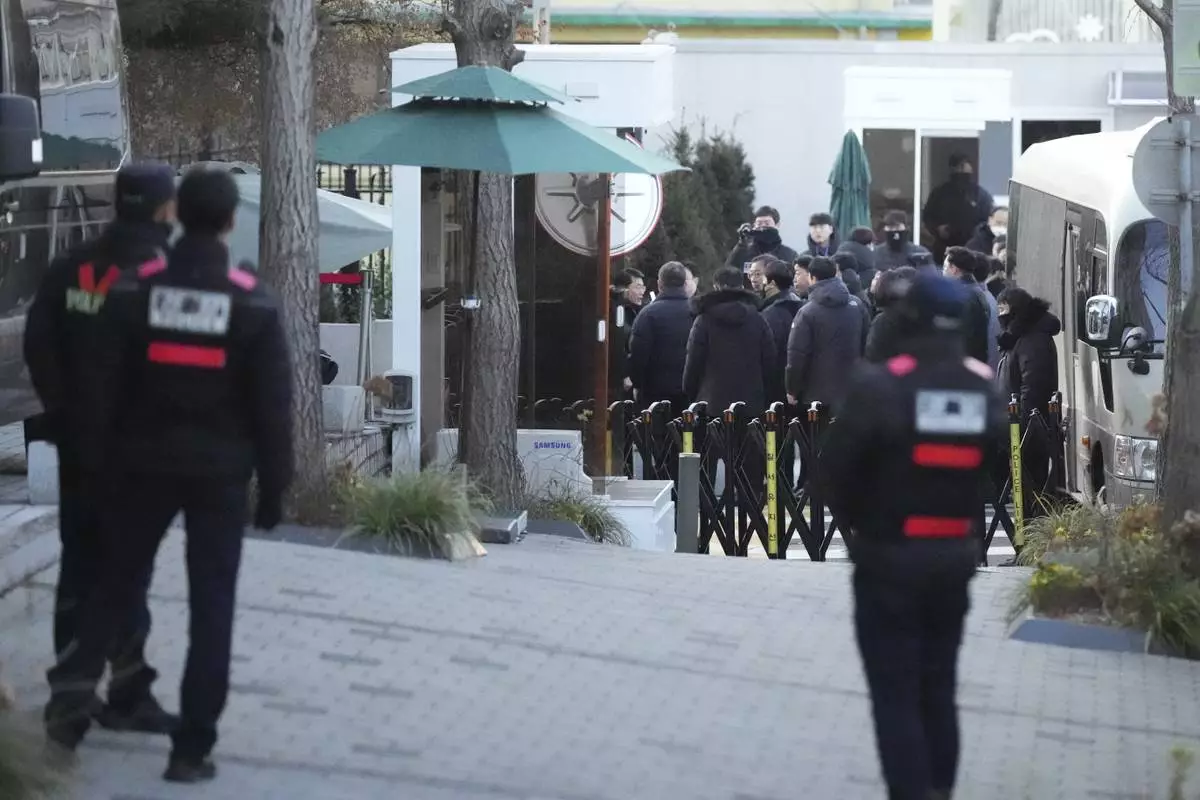
Investigators from the Corruption Investigation Office for High-ranking Officials arrive at the gate of the presidential residence as supporters of impeached South Korean President Yoon Suk Yeol stage a rally to oppose a court having issued a warrant to detain Yoon, in Seoul, South Korea, Friday, Jan. 3, 2025. (AP Photo/Lee Jin-man)
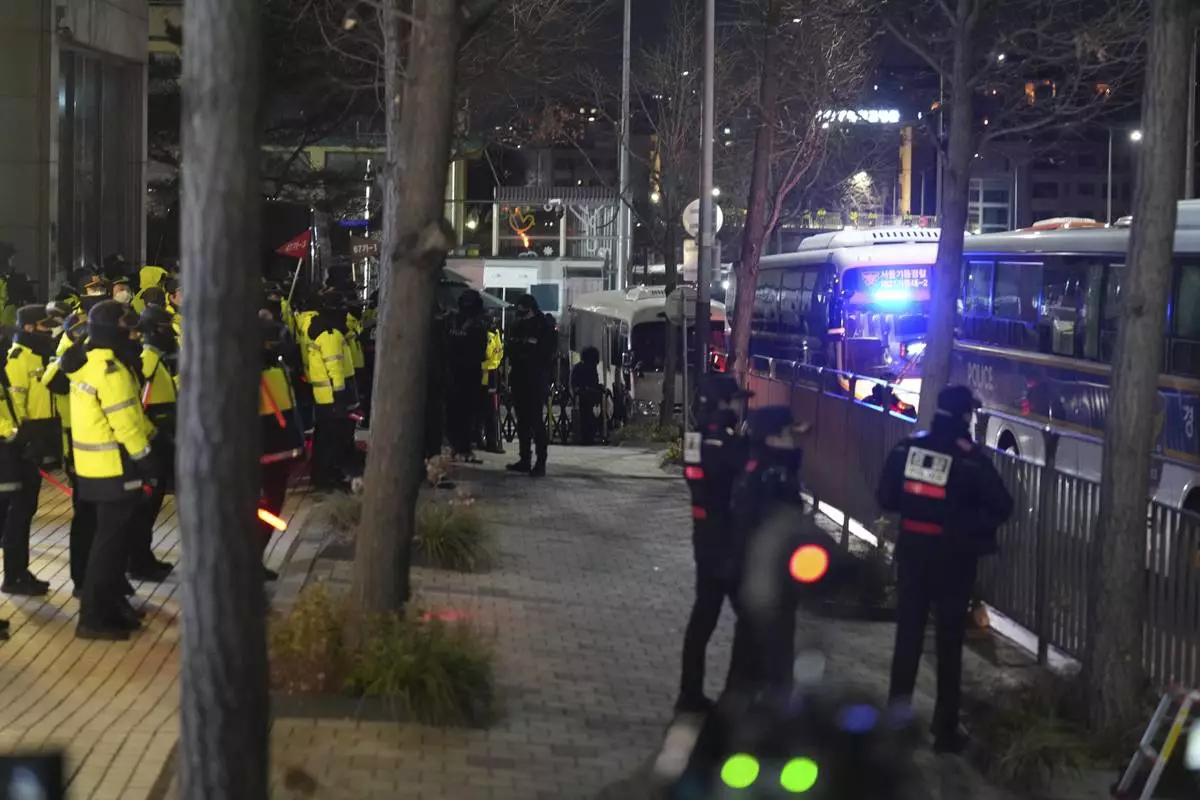
Police and barricades are placed in front of the gate of the presidential residence as supporters of impeached South Korean President Yoon Suk Yeol stage a rally to oppose a court having issued a warrant to detain Yoon, in Seoul, South Korea, Friday, Jan. 3, 2025. (AP Photo/Lee Jin-man)
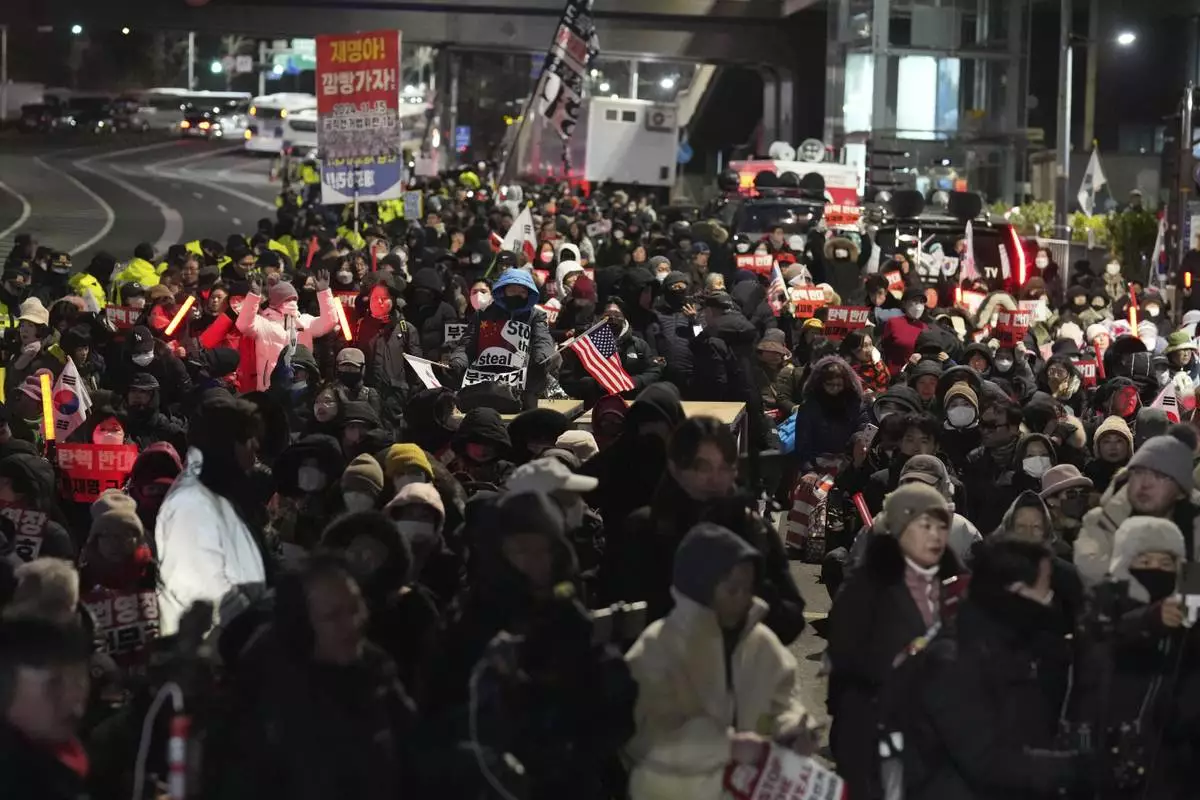
Supporters of impeached South Korean President Yoon Suk Yeol stage a rally to oppose a court having issued a warrant to detain Yoon, as police offices stand guard near the presidential residence in Seoul, South Korea, Friday, Jan. 3, 2025. (AP Photo/Lee Jin-man)
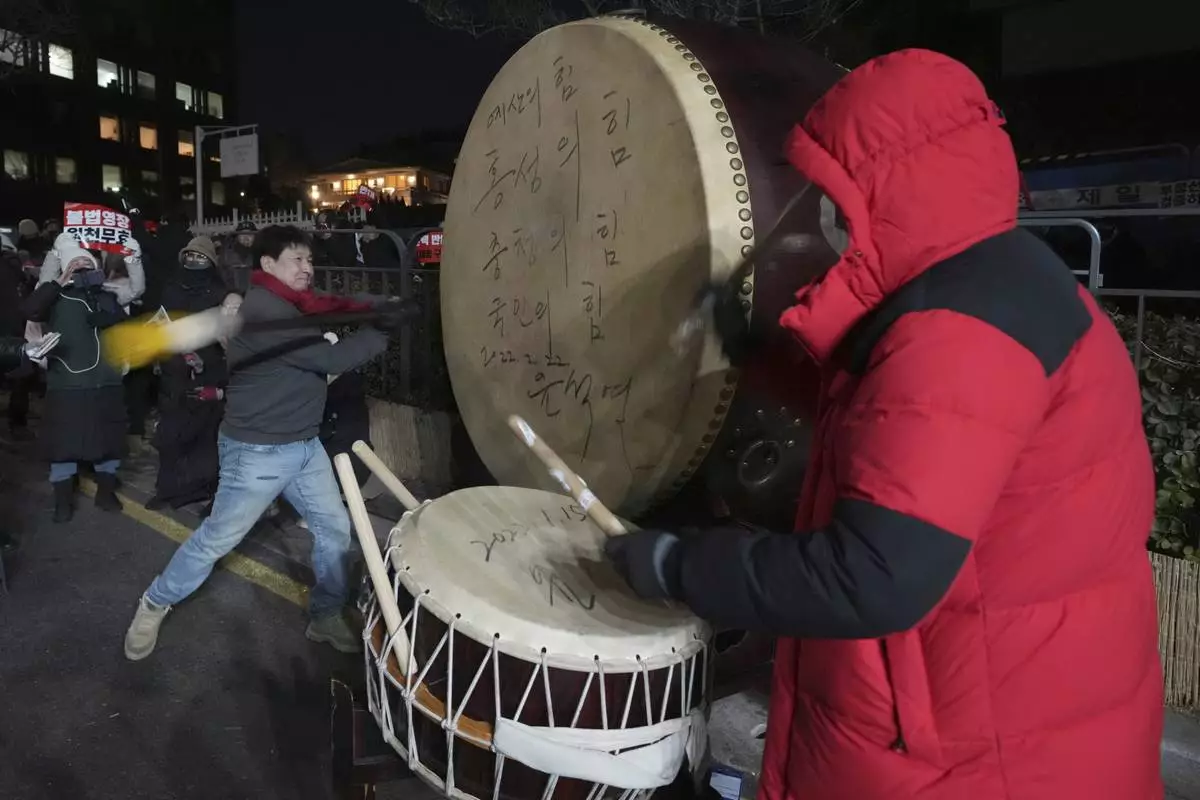
Supporters of impeached South Korean President Yoon Suk Yeol stage a rally to oppose a court having issued a warrant to detain Yoon, as police offices stand guard near the presidential residence in Seoul, South Korea, Friday, Jan. 3, 2025. (AP Photo/Lee Jin-man)
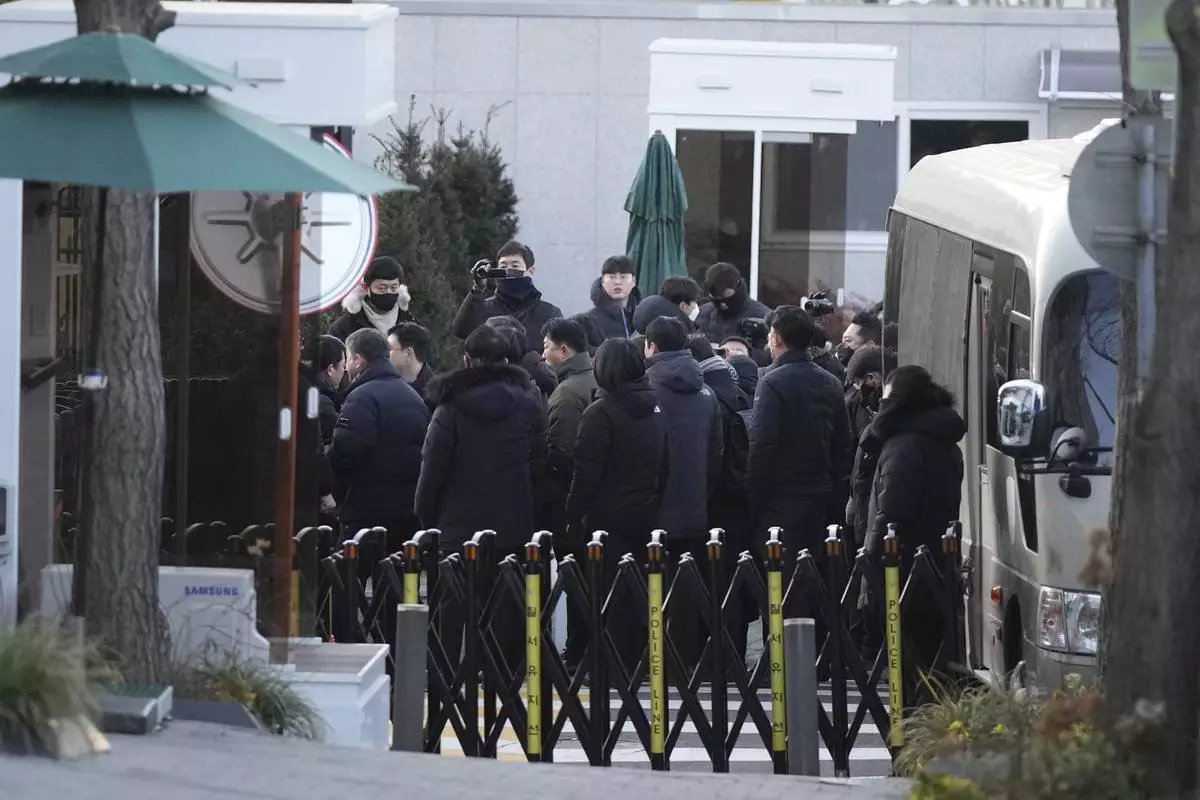
Investigators from the Corruption Investigation Office for High-ranking Officials arrive at the gate of the presidential residence as supporters of impeached South Korean President Yoon Suk Yeol stage a rally to oppose a court having issued a warrant to detain Yoon, in Seoul, South Korea, Friday, Jan. 3, 2025. (AP Photo/Lee Jin-man)
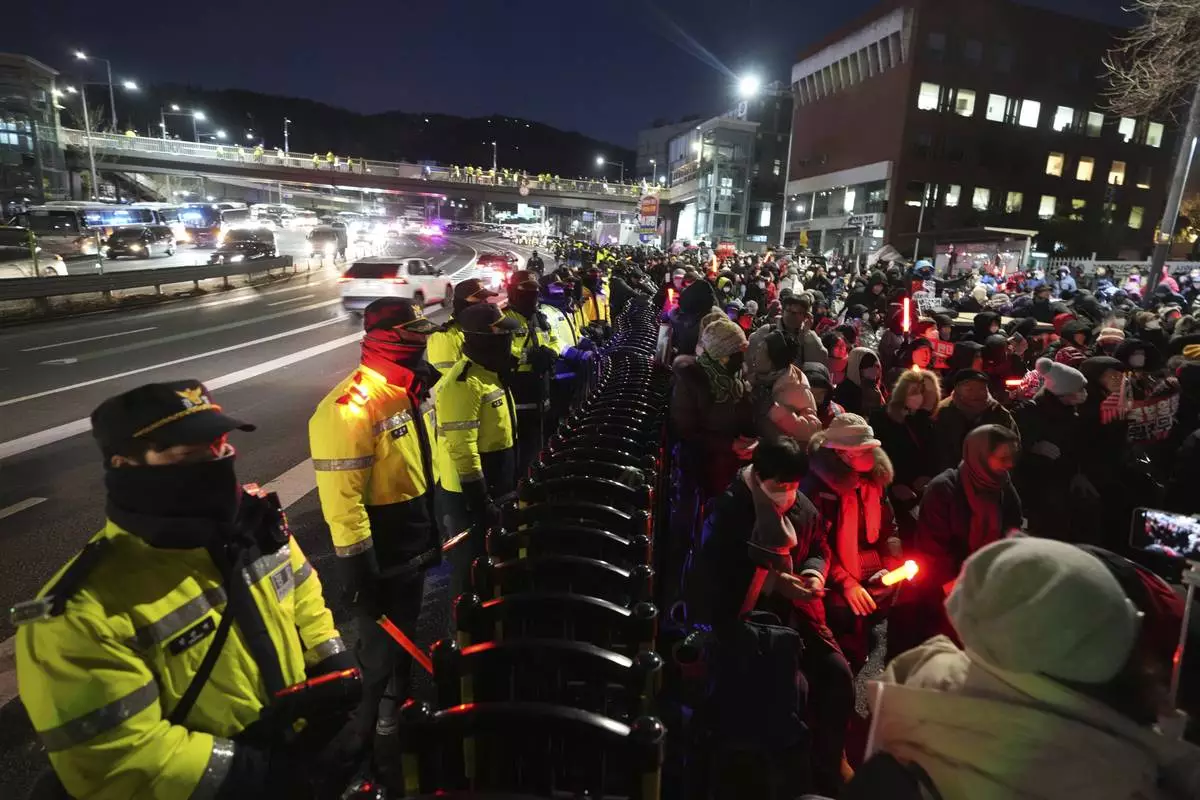
Supporters of impeached South Korean President Yoon Suk Yeol stage a rally to oppose a court having issued a warrant to detain Yoon, as police offices stand guard near the presidential residence in Seoul, South Korea, Friday, Jan. 3, 2025. (AP Photo/Lee Jin-man)
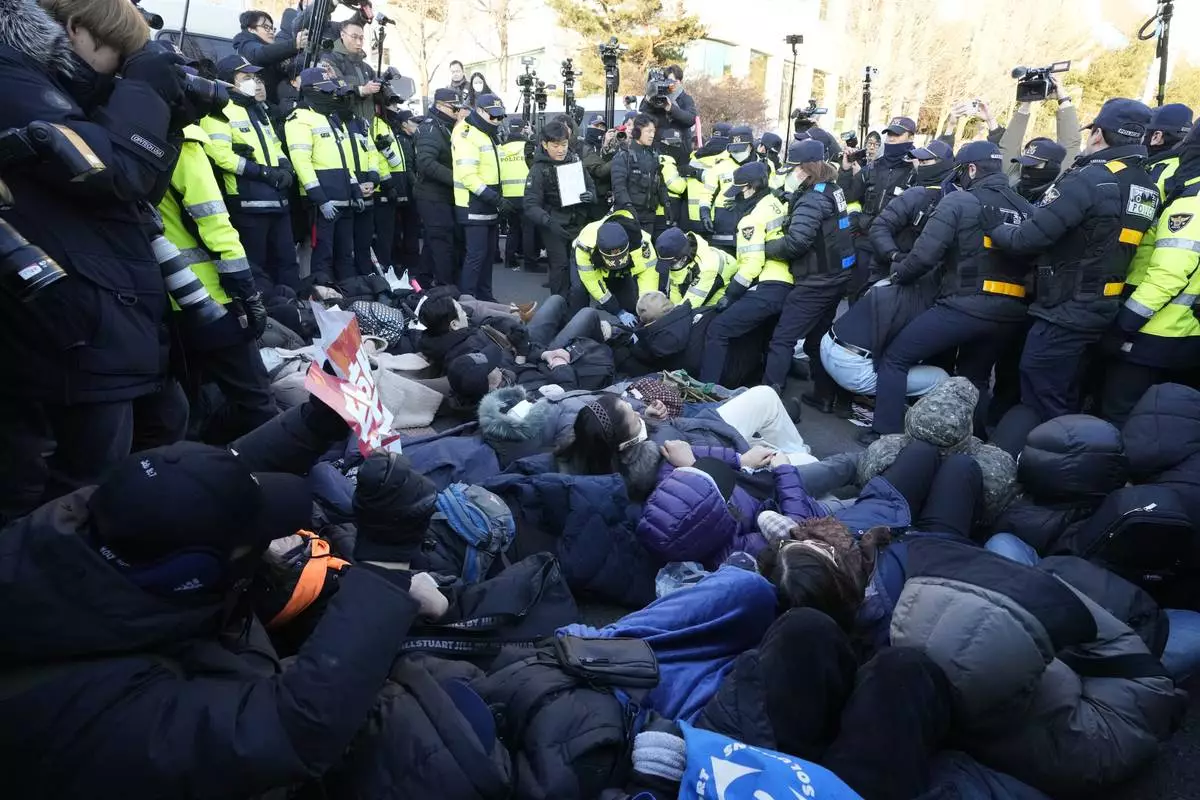
Police officers drag away supporters of impeached South Korean President Yoon Suk Yeol as Yoon faces potential arrest after a court on Tuesday approved a warrant for his arrest, near the presidential residence in Seoul, South Korea, Thursday, Jan. 2, 2025. (AP Photo/Ahn Young-joon)
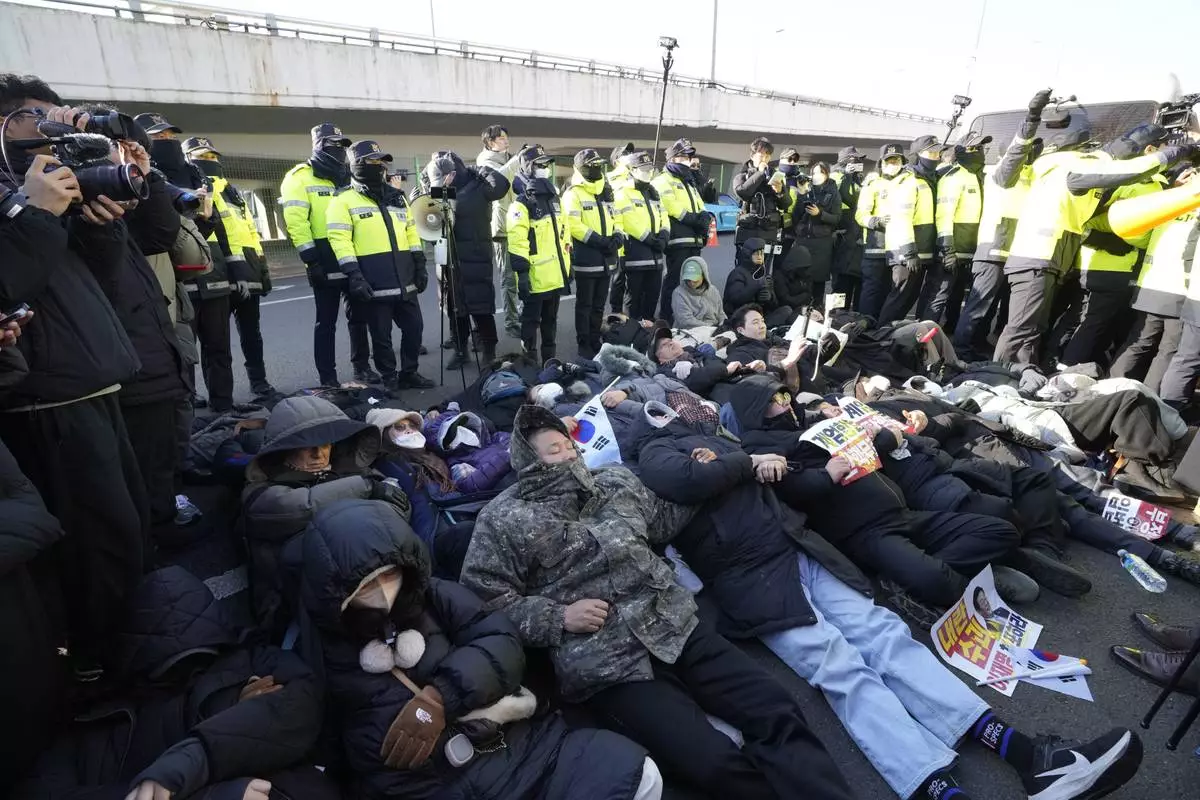
Supporters of impeached South Korean President Yoon Suk Yeol lie down on the ground as Yoon faces potential arrest after a court on Tuesday approved a warrant for his arrest, near the presidential residence in Seoul, South Korea, Thursday, Jan. 2, 2025. (AP Photo/Ahn Young-joon)
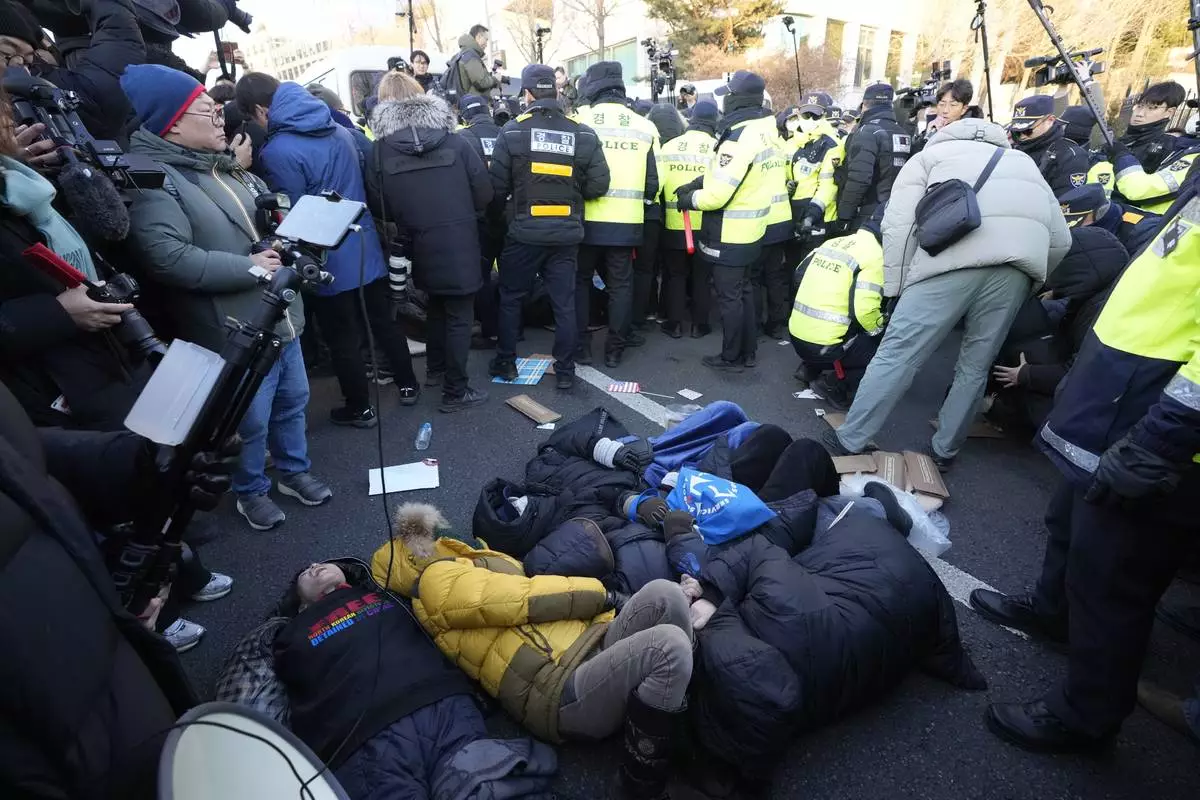
Supporters of impeached South Korean President Yoon Suk Yeol lie down on the ground as Yoon faces potential arrest after a court on Tuesday approved a warrant for his arrest, near the presidential residence in Seoul, South Korea, Thursday, Jan. 2, 2025. (AP Photo/Ahn Young-joon)
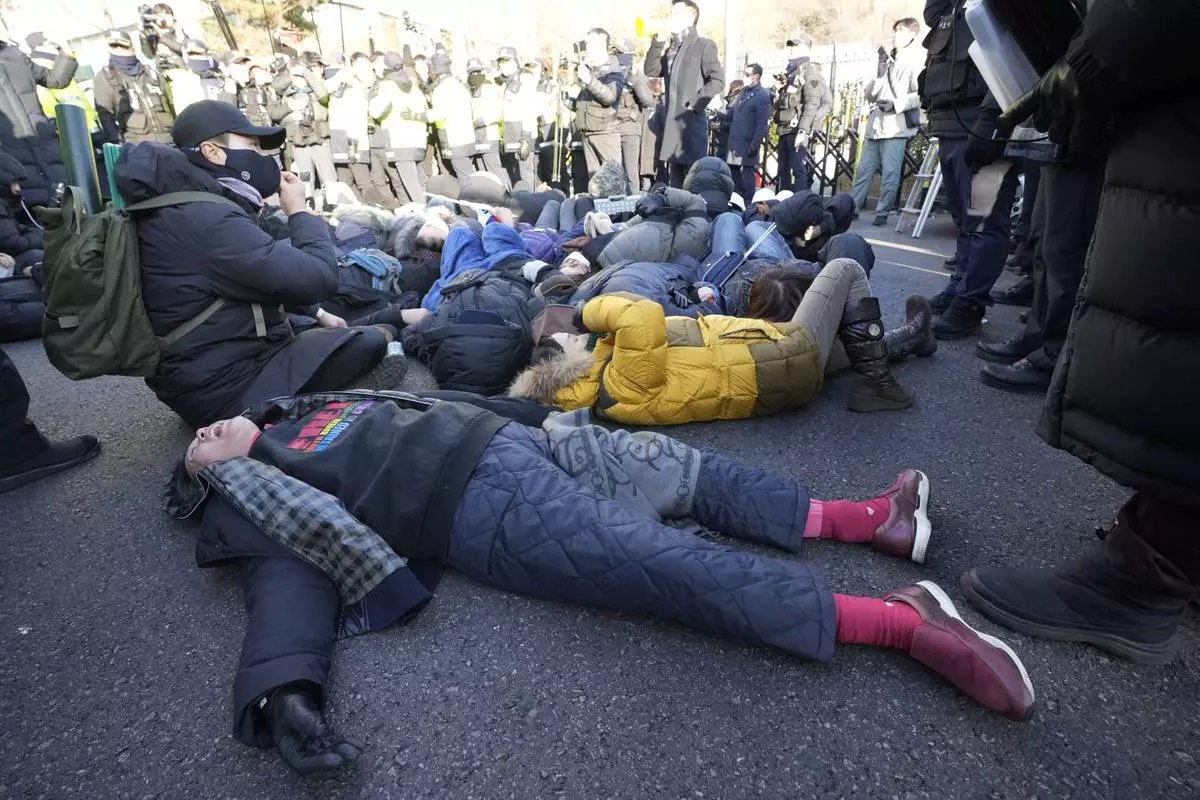
Supporters of impeached South Korean President Yoon Suk Yeol lie down on the ground as Yoon faces potential arrest after a court on Tuesday approved a warrant for his arrest, near the presidential residence in Seoul, South Korea, Thursday, Jan. 2, 2025. (AP Photo/Ahn Young-joon)
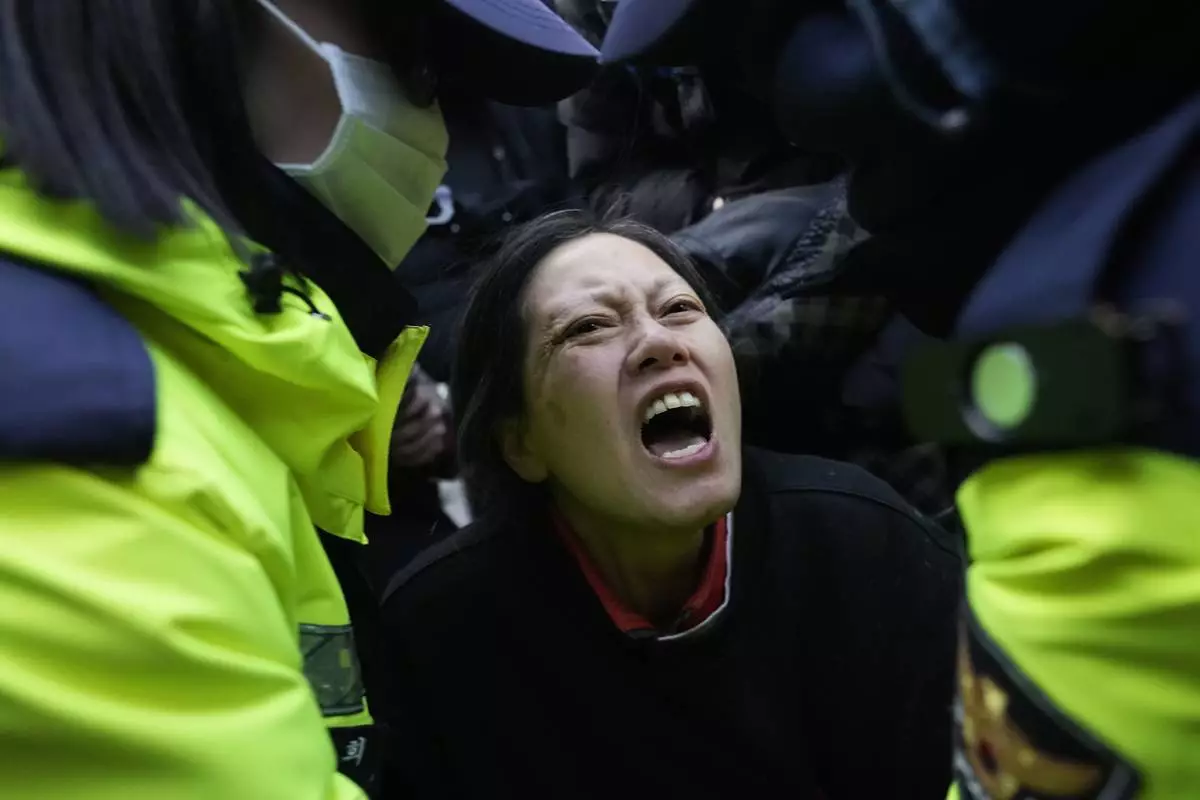
Police officers escort away a supporter of impeached South Korean President Yoon Suk Yeol as Yoon faces potential arrest after a court on Tuesday approved a warrant for his arrest, near the presidential residence in Seoul, South Korea, Thursday, Jan. 2, 2025. (AP Photo/Ahn Young-joon)
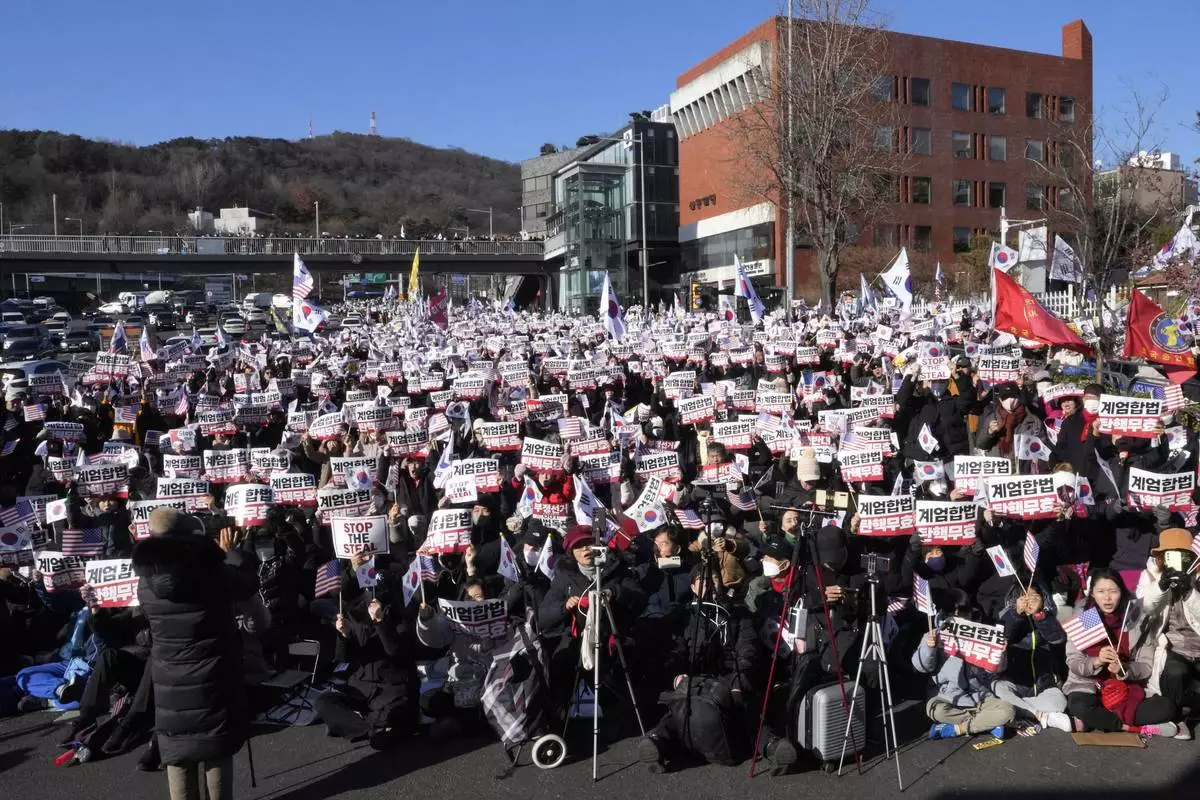
Supporters of impeached South Korean President Yoon Suk Yeol stage a rally to oppose a court having issued a warrant to detain Yoon, near the presidential residence in Seoul, South Korea, Thursday, Jan. 2, 2025. The signs read, "Oppose impeachment." (AP Photo/Ahn Young-joon)
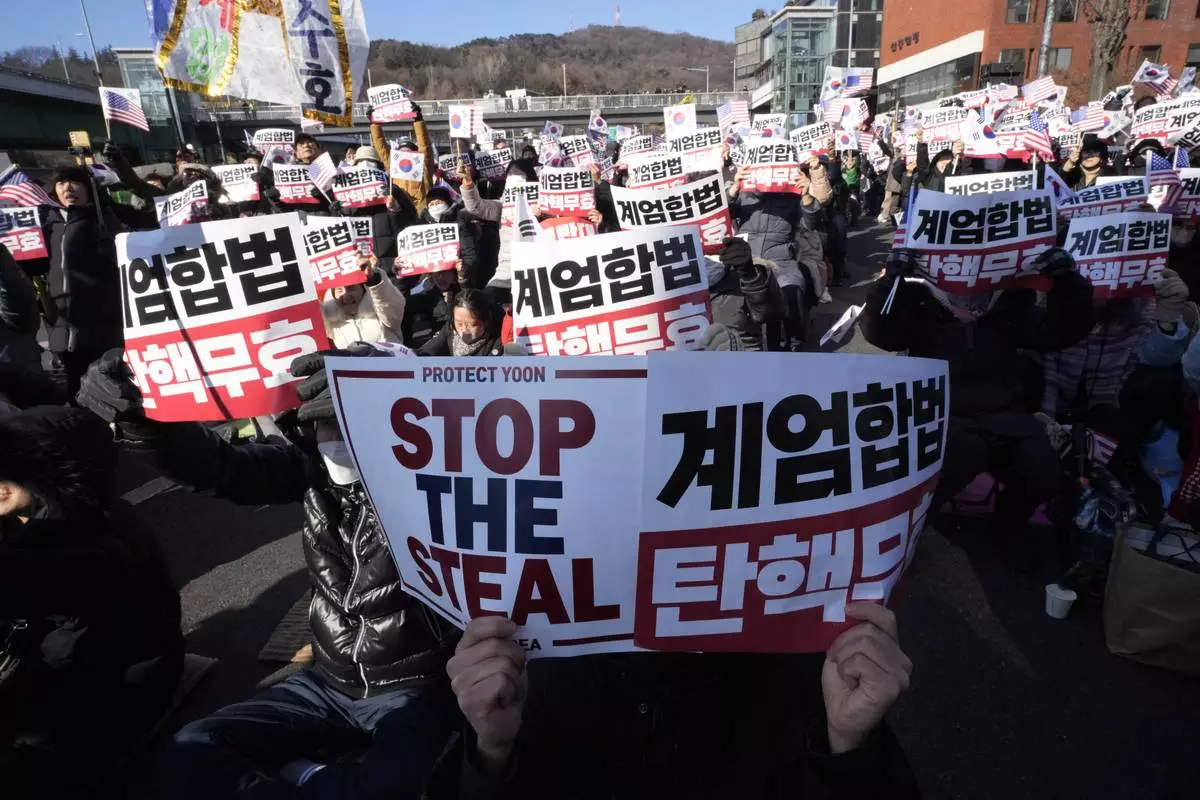
Supporters of impeached South Korean President Yoon Suk Yeol stage a rally to oppose a court having issued a warrant to detain Yoon, near the presidential residence in Seoul, South Korea, Thursday, Jan. 2, 2025. The signs read, "Oppose impeachment." (AP Photo/Ahn Young-joon)
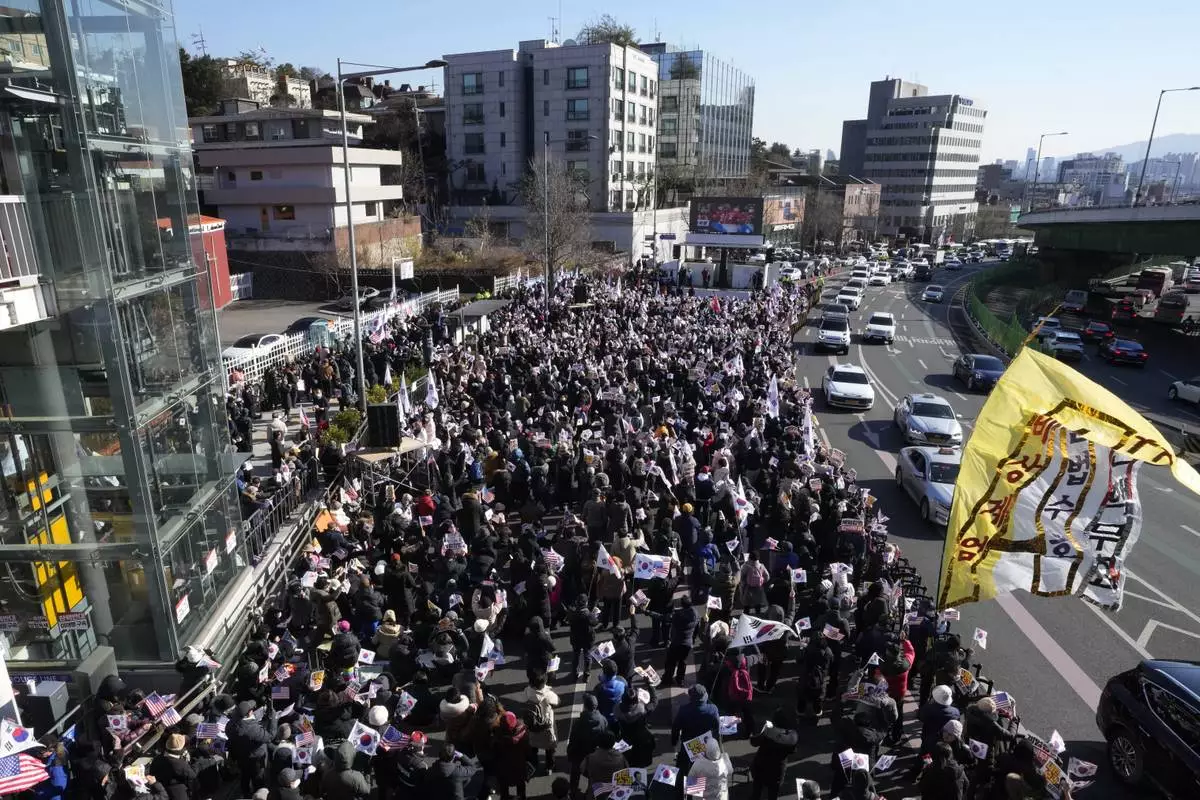
Supporters of impeached South Korean President Yoon Suk Yeol stage a rally to oppose a court having issued a warrant to detain Yoon, near the presidential residence in Seoul, South Korea, Thursday, Jan. 2, 2025. (AP Photo/Ahn Young-joon)
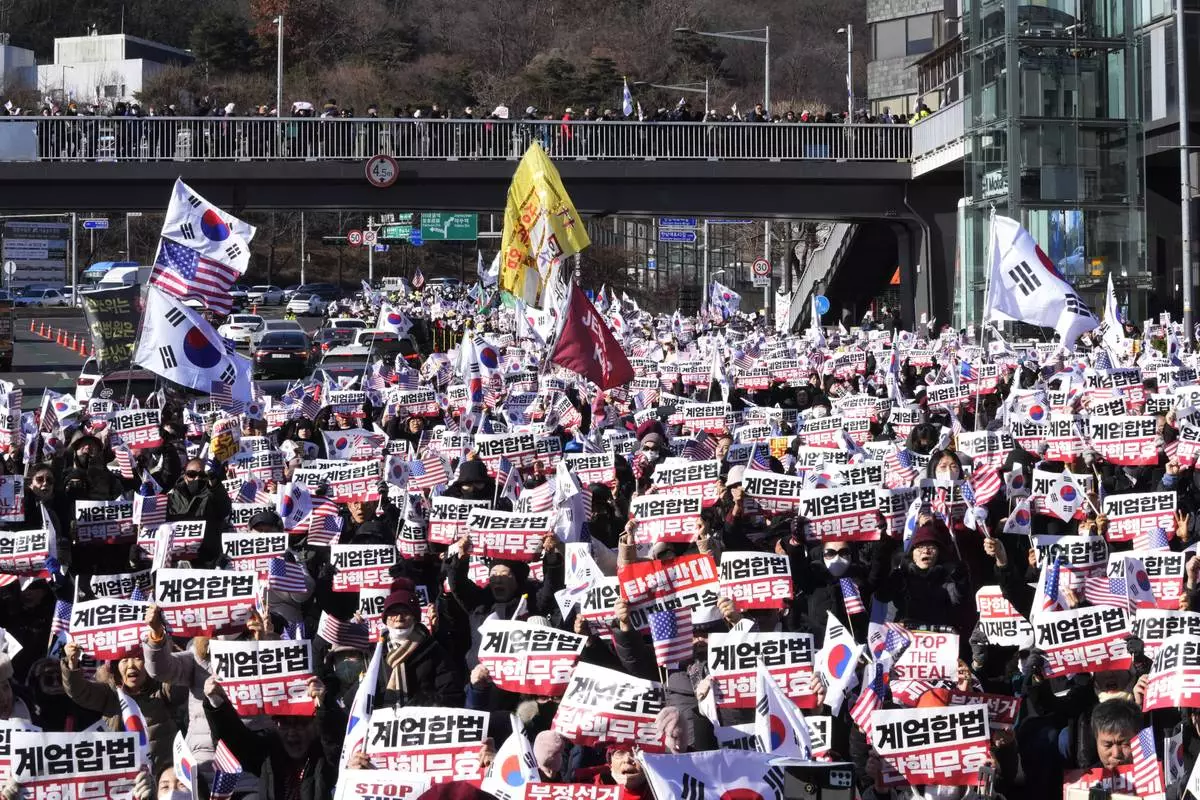
Supporters of impeached South Korean President Yoon Suk Yeol stage a rally to oppose a court having issued a warrant to detain Yoon, near the presidential residence in Seoul, South Korea, Thursday, Jan. 2, 2025. The signs read, "Oppose impeachment." (AP Photo/Ahn Young-joon)
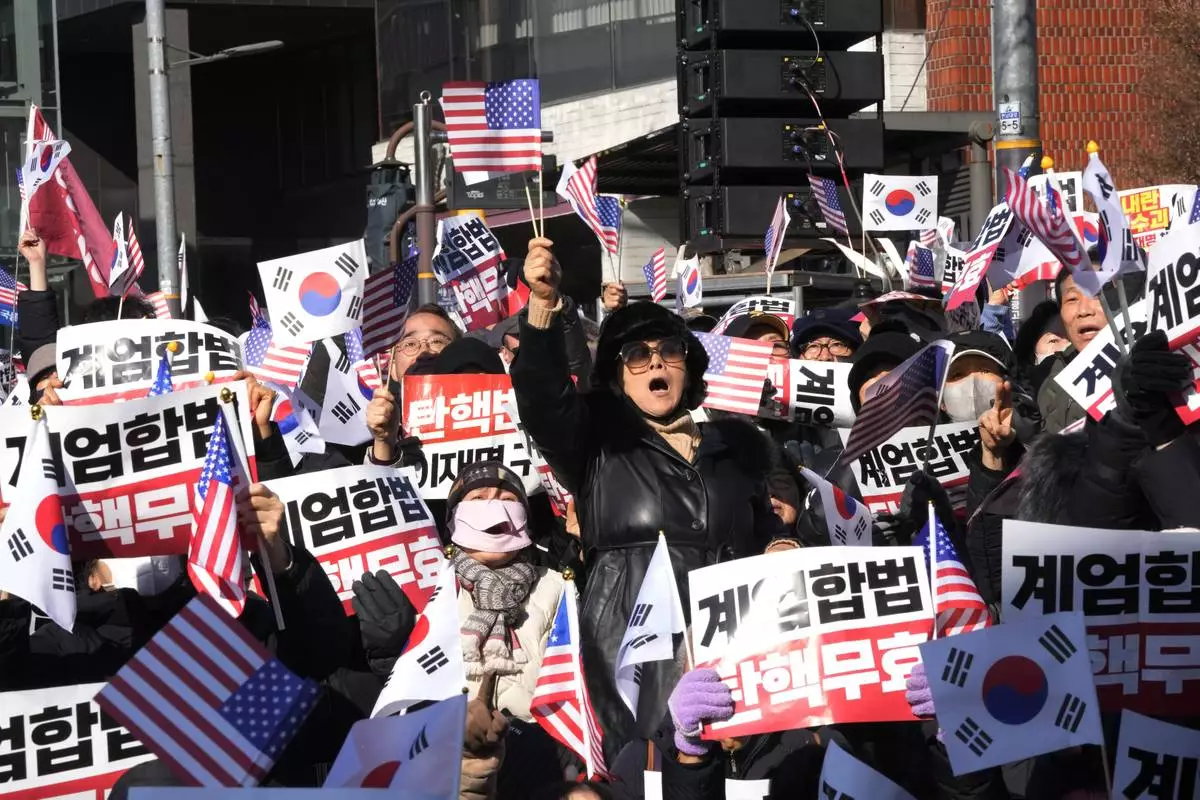
Supporters of impeached South Korean President Yoon Suk Yeol stage a rally to oppose a court having issued a warrant to detain Yoon, near the presidential residence in Seoul, South Korea, Thursday, Jan. 2, 2025. The signs read, "Oppose impeachment." (AP Photo/Ahn Young-joon)
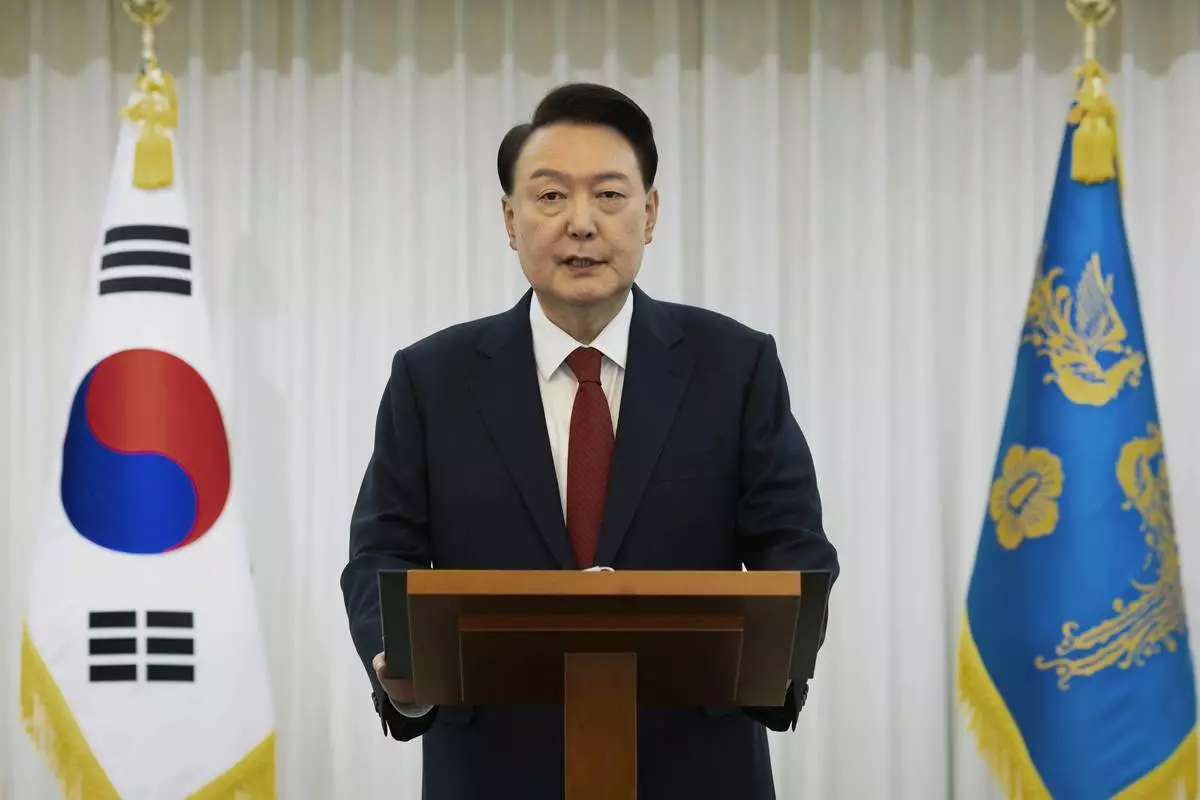
FILE - In this photo provided by the South Korean President Office, the country's President Yoon Suk Yeol speaks at the presidential residence in Seoul, South Korea, Dec. 14, 2024. (South Korean Presidential Office via AP, File)































